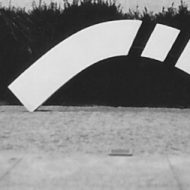To whom this may concern,
We are writing to let you know that we are still here. On Wednesday 6th May, the Performance@ administrators met with Kélina Gotman to talk about how to launch Performance@ in the time of the COVID-19 pandemic. It was invigorating to hear each other’s voices and to see each other’s faces on our screens at home.
A conversation.
Our topic of conversation was seemingly simple: What does the scheduled launch of this performance network look like now? This simple question provoked a series of deeper meditations: Who is involved, now that we are not, per se, geographically restricted? How do we demarcate the boundaries of this network at a time when borders and divisions are changing, moving, devolving, and inevitably, re-appearing in new forms, more tangible than ever? And how should we launch? On whose terms, where, when, with what technological affordances? What would be an adequate event, a sufficient gathering, an apt happening? By which we really mean to say, what is performance now?
Solidarity.
We find ourselves in a time of deep questioning, of social and economic upheaval, of lifestyle and habitual change, and of loss. Through the collective trauma of COVID-19, many of us have lost physical contact. We have lost contact with loved ones, with the elderly, with the rhythms of our day, with ourselves even. We have lost contact with our sense of normal, whatever that may be. This loss of contact almost feels like a unifying experience, perhaps allowing solidarity in a time of extreme solitude. Our bereavement for contact feels inimitably bound to matters of corporeality, liveness, presence, embodiment,– that is, bound to long-established frameworks for understanding performance. And so perhaps this, more than even, is the best time to be launching Performance@?
Solace.
Everyone decides to walk. Or at least, it feels like a decision. People smile as you pass them, it’s quiet and across the street a sheet of newspaper drifts naturally on the breeze. There is no traffic. Your phone buzzes in your pocket. Two different people who have never met instantaneous send you the same Snoop Dogg meme. You smile. A bird sings in a tree. You have walked for 45 minutes. This is a new route for you. You remember to side-step around the couple with a pushchair. It’s easier for you. They thank you with a nod. Their child is wearing a mask. It is 245pm. You cannot remember what you did this morning. Tomorrow you will Facetime your Nan on her carer’s iPad. She is hallucinating, with COVID-19 they later realise. You teach her how to close her eyes and count her breaths, 1, 2, 3, 4, 5, 6, 7, … She seems almost to fall asleep, almost.
Security vs. Morality.
Someone remarked on Instagram the other day that this is the first time their tendency toward rebelliousness had conflicted with their moral compass. The securitisation of social distancing via the police-enforced state of “lockdown” re-articulates behaviours we might otherwise see as respectful, thoughtful, sensible, through a legal framework. What does performance studies look like in a time when the command of law over how bodies may co-exist in space has so radically shifted? That my body may not legally come into the same 2-metre sphere as yours is a remarkable event in the history of global biopolitics, demanding swift critical reflection. Performance studies is poised to commence this interrogation, whenever we are recovered and ready to do so.
A letter.
It seemed like the best thing to write this letter. The internet is amass with COVID-19 statements, policies, regulations, restrictions, people reduced to figures of precarity, mobility and mortality. A letter is first and foremost an address. Maybe the letter says something of note. Maybe you lift a phrase from the letter, pin it to your wall, to remind you to respond. But if nothing else, a letter is a point of contact. It says: we are still here. It says: you are still here. It says: we are here together.
